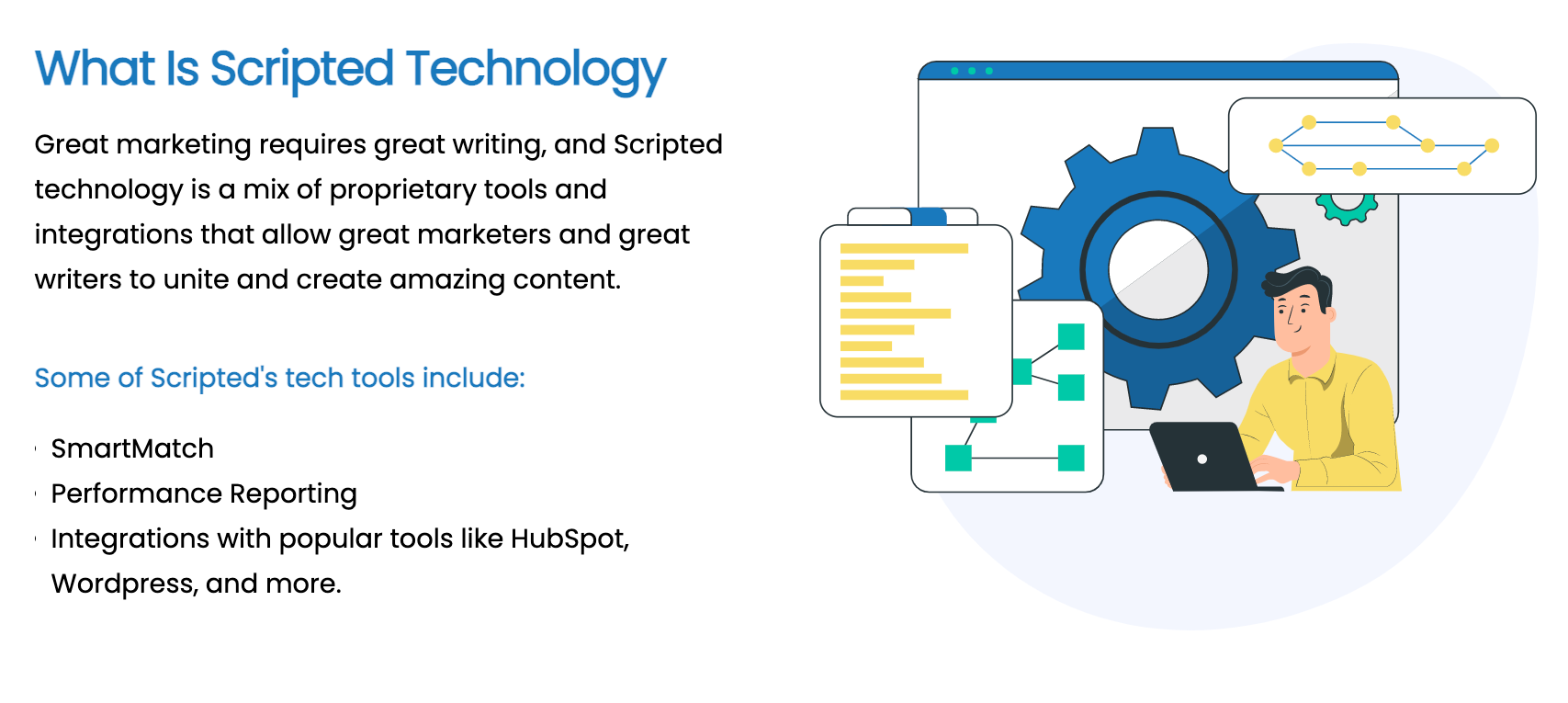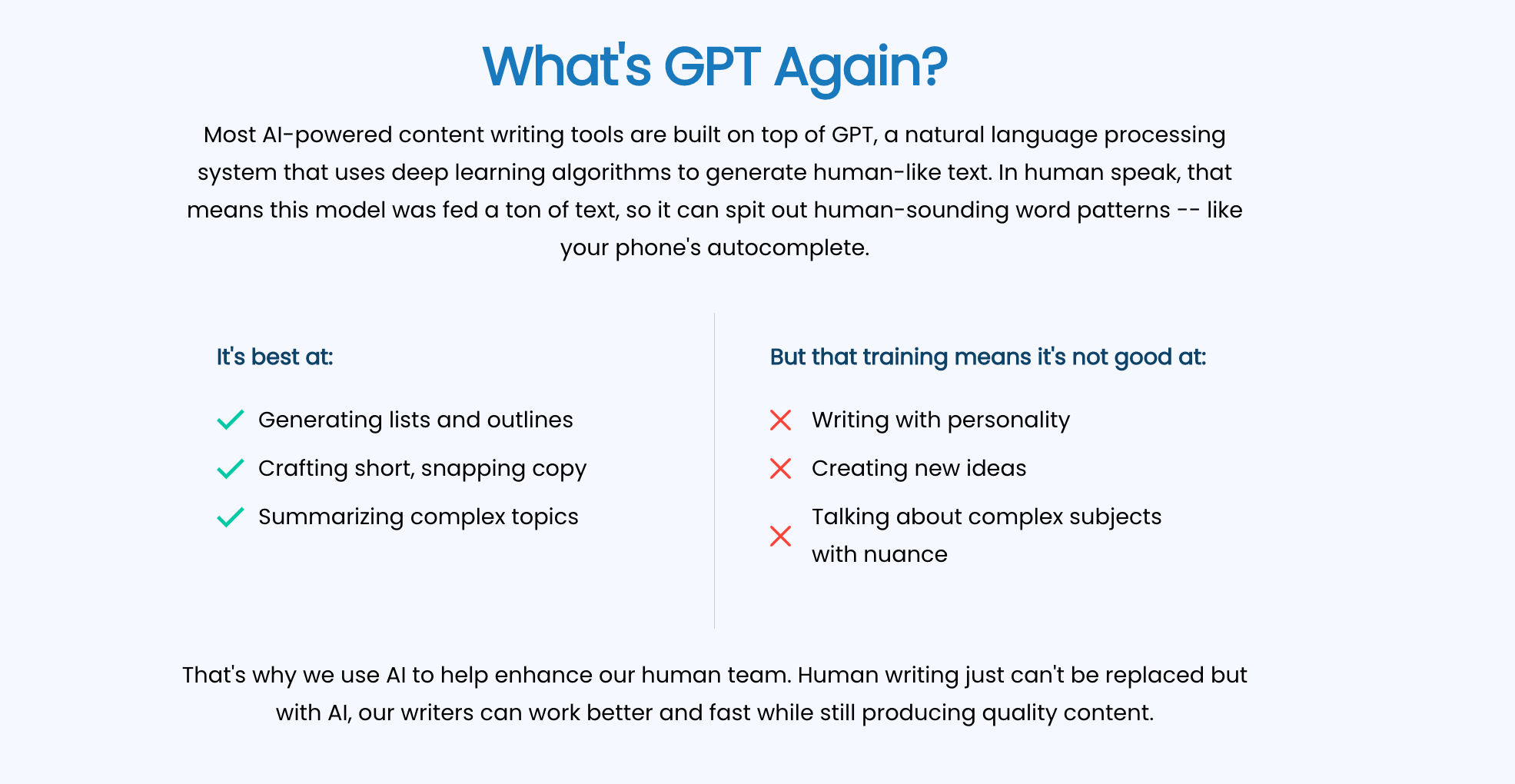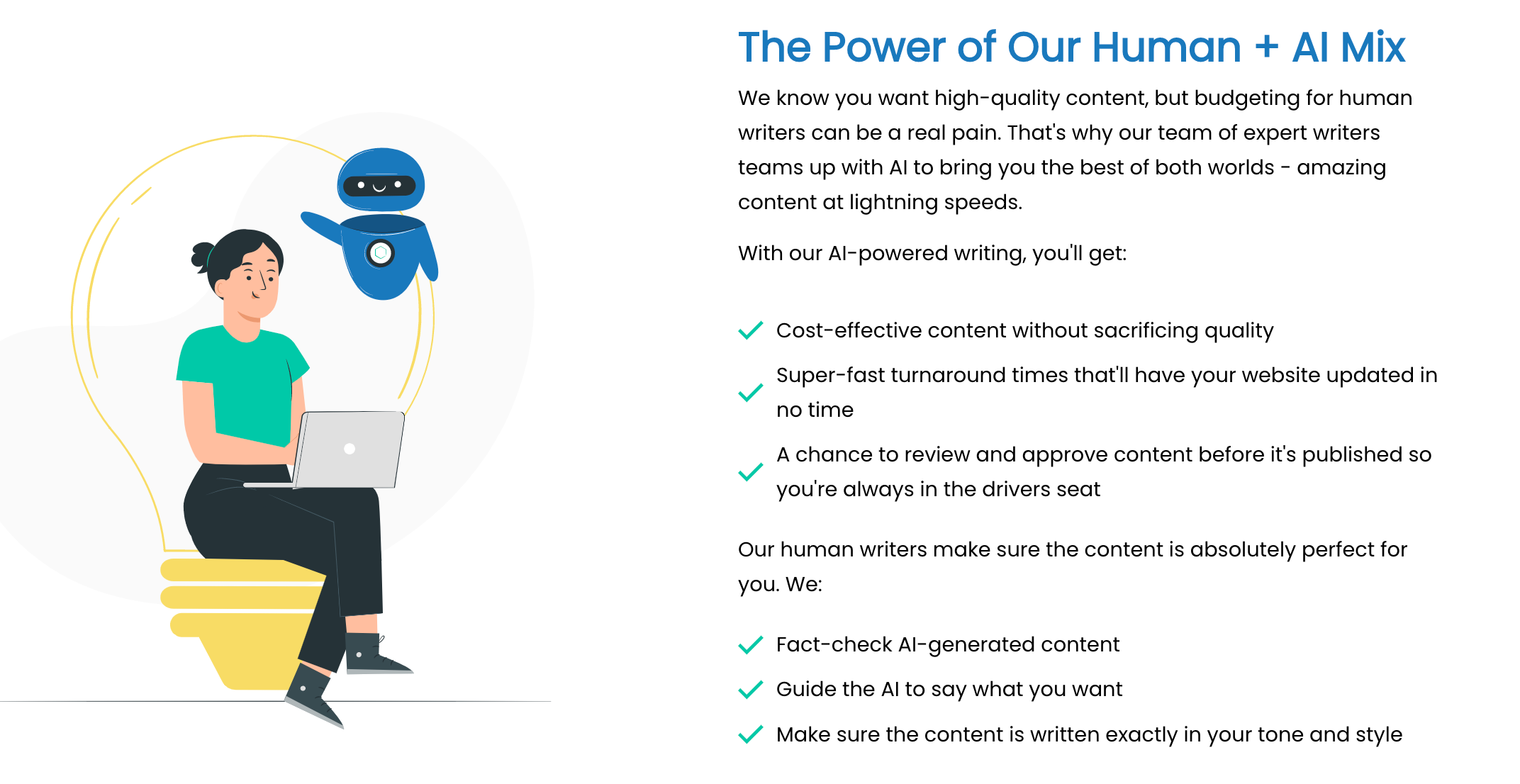- Blog Home
- Content Marketing
- Adam Grifitth
- When Marketing Ai Overcomes The Uncanny Valley
When Marketing AI Overcomes The Uncanny Valley

The digital marketing realm is evolving at lightning-fast speeds, and artificial intelligence (AI) is a significant contributor. Although transitioning from human teams to a fully AI-powered process is still a gray area, it is the next frontier in digital marketing.
AI's ability to replace entire marketing teams is in its infancy, but the possibilities are real and may emerge sooner than people expect. In 2023, AI can already perform some pretty amazing tasks. AI-powered tools allow for greater automation, personalization, segmentation, and more. However, it is the future capabilities of AI that many are unsure about.
When AI overcomes the uncanny valley, marketing strategies will evolve accordingly.
The Uncanny, What?
The "uncanny valley" is a term used to describe the link between a humanlike robot or AI tool and the emotional response it causes. For example, when people see highly realistic robots, this can create a sense of unease. Currently, AI is stuck between being lifelike and being not quite right.
This term was first coined back in the 1970s by Professor Masahiro Mori. He developed this concept based on how robots appeared more humanlike, becoming more appealing — but only until a certain point. Once people hit the uncanny valley, there's a sense of uneasiness. So, the uncanny valley is the negative reaction to certain experiences involving lifelike robots. When robots become too real, people become freaked out.
What Does This Mean for Marketing?
In 2023, AI technology is all around us. Marketing teams have been leveraging the power of AI for years to tailor product ads, track performance, provide customer support, automate scheduling, and much more. These processes are a part of everyday life.
Purchasing recommendations and advertising on popular sites like Amazon, Google, and Facebook depend on automation to quickly display a message that reflects your interests. Implementing marketing AI for customer care and communication also hints at a future dominated by automated digital processes. The rise of chatbot usage is another area that shows the progression of AI, with 62% of consumers preferring to use a customer service bot rather than wait for human agents to answer their requests.
Siri and Cortana already serve as advanced AI assistants for billions of users, and ChatGPt recently broke a record for the fastest-growing database. This chatbot attracted 100 million users in just two months, showcasing the public's interest in AI technology.
Everywhere you look, modern marketing is steeped in AI, and humans interact comfortably with automated digital personas, showing that artificial intelligence has already been accepted tacitly. This provides the psychological environment necessary to implement upcoming marketing innovations.

Learn more about Scripted technology and how it can help you create quality content at scale.
Navigating the Uncanny Valley
Connecting vast amounts of data to advanced software has created the current state of marketing AI. By leveraging AI-based tools and services, companies can enhance efficiency and productivity to cut costs and drive growth. However, people still turn to other humans when they require a genuine connection. People sometimes need to build trust before buying, while others require communication with an authoritative figure to settle an issue who can empathize with their unique concerns and needs.
Chatbot escalation procedures exist to detect anger, referring customers to a human presence because AI isn't sophisticated enough to handle complex emotional situations. Machine learning through neural networks that simulate human cognitive functions represents the next step toward strong AI and artificial superintelligence (ASI).
Weak AI is what consumers are used to using day in and day out, including technology that provides directions or recommends movies. In contrast, strong AI makes some people uneasy, as it can perform, think, learn, and perform tasks like humans. While there are no clear-cut examples of strong AI, there are fields where AI is rapidly innovating, such as cybersecurity, content creation, and behavioral recognition via predictive algorithms. All of which are facing ethical pushback.
Strong AI behaves like a mind that can learn and respond intelligently to complex situations. This type of AI would build genuine trust and defuse emotionally explosive situations, providing marketing departments with the type of chatbot that would reduce, or eliminate, the need for human representatives.
Creating this genuine type of high-level interaction requires AI to overcome the uncanny valley, which refers to the unease felt when interacting with something almost human.
How Far Could AI Go?

Human behavior dictates data collection and the algorithms that create artificial intelligence. After conquering the uncanny valley, society could witness digital reflections. Chatting with AI via instant messaging or over the phone will be the same as communicating with humans. Special effects will soon replicate the look of humans over video monitors, adding an all-important visual element that increases immersion.
Companies across varying industries are already exploring the concept of digital reflections. The concept of digital reflections is being considered a possible solution that would transform therapy, relationships, and the human experience. A recent article on this subject, published by Charles Voloshin, was written by ChatGPT 4 — yet prompted and edited by Voloshin. It dives deep into this concept, stating, "The concept of a virtual self is no longer just the stuff of science fiction."
While companies may not develop "digital twins" of employees, self-operating machines are likely on the horizon. Eventually, marketing departments could have access to automatons that appear, move and behave exactly like humans without triggering a sense of apprehension. They could be programmed to quickly alter their appearance and approach, responding to in-depth customer databases based on varying preferences.
There are many theories about what could be, some of which are fairly extreme. Many believe the limits of AI in marketing appear to depend on the willingness of humans to accept digital constructs in their lives. Robot consciousness is being discussed as the next (and potentially final) step for AI — although it has many hurdles ahead. For now, it's still somewhat of a sci-fi pipe dream.
What Is a Realistic Progression of Marketing AI?
Today, marketing teams are leveraging the AI tools and applications available. By welcoming these AI-powered tools into marketing strategies, teams significantly reduce the work needed for certain tasks. From idea generation to keyword research tools, the options available as of 2023 are already increasing efficiency. However, AI tools like ChatGPT are still in the early stages, as they require you to give them the right data and examples of what you expect from there. Even then, they can fall short.
For example, in the marketing industry, AI tools can provide insight into your targeted audience, but they cannot replace human understanding surrounding who the target is. Many marketers are seeing that the perfect strategy is a hybrid one. When you combine human experience with the power of AI, magical things can happen.
Marketing AI is already here, and it's here to stay. However, in the next 3-5 years, you can expect some of the following:
- Fully automated, 24/7 customer support is already in use to some degree. AI technology could be incorporated into your website or CRM in the coming years. Once it gains millions of data points, it could nearly take over your support team. While this process would need to be supervised, and matters would escalate as appropriate, all basic questions could be answered, regardless of the time of day.
- Optimization in advertising is already happening across all major social platforms. However, in the future, it will likely be a much more hands-off experience that doesn't require keywords, interests, etc. Instead, platforms can show the right content to the right consumers at the right time.
- Supercharged analytics and data insights, allowing for real-time decision-making. Campaigns will likely become much more effective as AI algorithms improve personalization and predictive marketing.
A Hybrid Approach Is Optimal in 2023 and Beyond

Since the release of ChatGPT in late November 2022, marketers haven't been able to get enough. Millions of users have tried this AI-powered tool, showcasing people's fascination with AI content generation. The possibilities are immense, but only when used properly.
While the future of AI will likely expand beyond our current limits, as of 2023, it still has many limitations. Some find AI-written content dry, but that's not the greatest issue. The content created by tools like ChatGPT requires extensive fact-checking, which can tarnish your reputation if you're not careful. Concerns surrounding accuracy mean that AI tools can not yet replace humans, nor should they. The most effective strategies combine the power of AI-related software and the unique capabilities of human writers and editors.
AI tools can help optimize processes, offering solutions for outline generation, keyword research, competitor research, etc. This step toward greater automation is a stepping stone toward more efficient processes and supercharged ROIs.
Scripted and the Future of Marketing AI

Marketing will always revolve around human activity, regardless of the technology involved. Preparing for a future that includes an explosion in AI ensures that you'll adapt well to innovative advantages. As marketing tech progresses, the effectiveness of our digital reflections will always depend on a genuine understanding of human interaction.
Scripted will continue implementing AI tools that help clients, writers, and editors work together more efficiently, streamlining the content creation process. Check out some of the solutions we currently offer as we continue to innovate alongside AI technology:
- Content Strategy & Ideation
- Content Creation & Workflow
- Publishing & Promotion
- Performance & Optimization